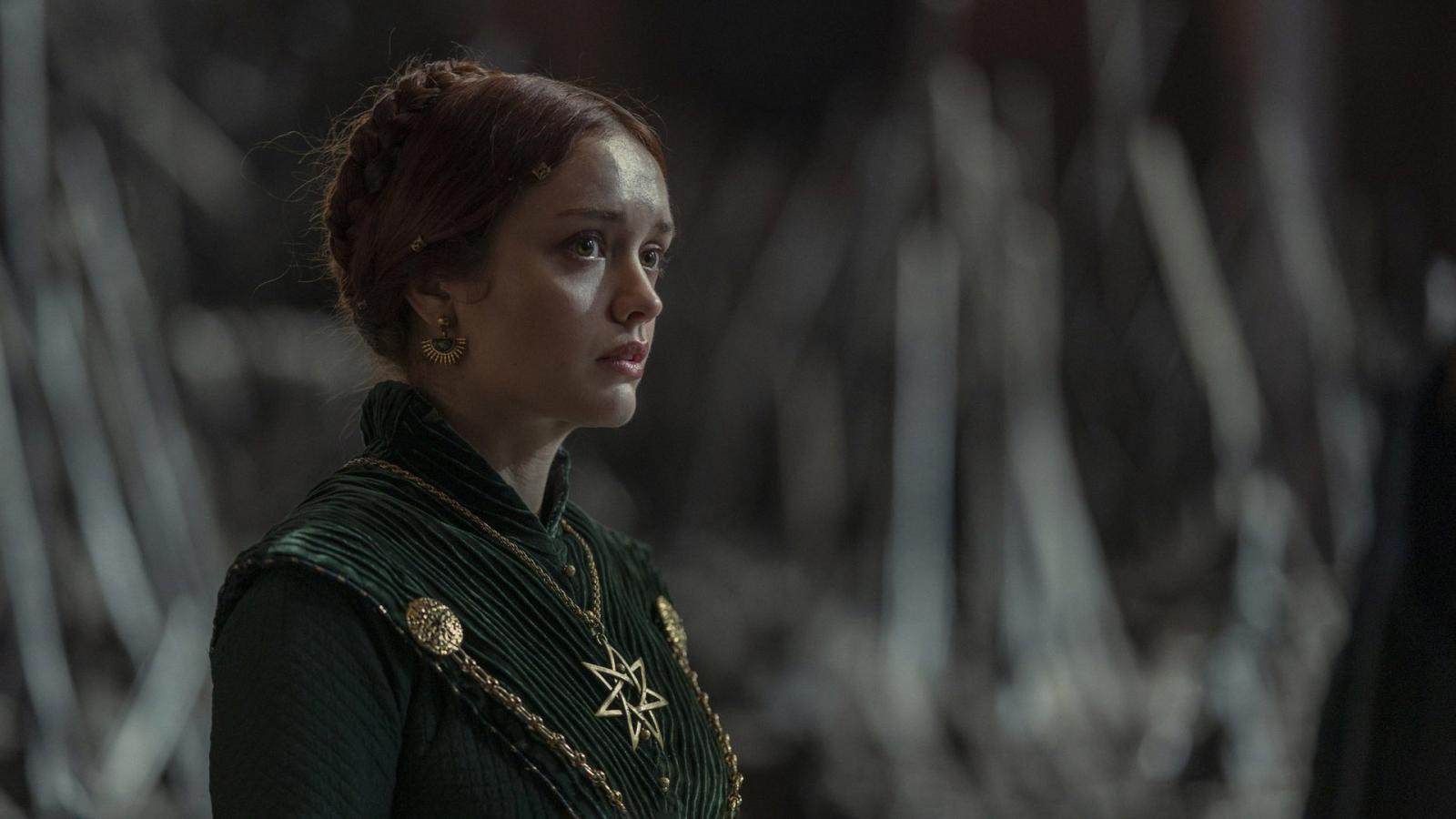An Unpopular House of the Dragon Opinion: Alicent Hightower Is a Compelling Character

Alicent represents the complexity of Westeros.
Summary
- Alicent Hightower is one of the most despised characters on the show.
- Her background amply explains her behavior and actions.
- Alicent willfully surrenders her agency to the men around her.
Since Season 1 of House of the Dragon, Alicent Hightower seems to be the most irritating character on the show and one of the most hated by fans. And there are many reasons for this.
Some hate Alicent for betraying her childhood best friend, Princess Rhaenyra, by marrying her widowed father, King Viserys I. Others despise Alicent for pushing for her son Aegon to become the next king instead of the rightful heir Rhaenyra, which she succeeds in doing.
The most common reason for fan hatred of Alicent Hightower, however, is the notion that she is bland and stupid, which is best demonstrated in Episode 3 of Season 2 of House of the Dragon. In the episode she realizes that she put her son on the Iron Throne by mistake. But if you delve into Alicent's character, you see that she has reasons for thinking the way she thinks and doing the things she does.
The Faith of the Seven
Throughout House of the Dragon, Alicent is portrayed as a pious girl and woman, in contrast to her friend Rhaenyra. Alicent Hightower frequents the Great Sept of Baelor, so much so that it is the place where Rhaenyra manages to catch her unguarded. And while it seems like a personal quirk of Alicent's, it actually has more serious implications.

Alicent comes from House Hightower, rulers of one of the oldest, largest, and most populous cities in Westeros – Oldtown – where the Starry Sept, the original center of the Faith of the Seven on the continent, is located. Of course, religion is more important to the Hightowers, who are more influenced by the dogmas of the Church. Alicent is a prime example.
She is a devout believer whose understanding of good and evil is influenced by her faith. In Season 1, Alicent cares deeply about virtue and purity, which becomes the source of her conflict with Rhaenyra after the brothel rumor, and the reason for Alicent's contempt for her old friend when Criston Cole tells her the truth.
The Valyrians vs. the Andals
The Faith of the Seven, which upholds Westerosi patriarchal norms, is also what prevents Alicent from understanding Rhaenyra's audacity and will to power. Alicent's understanding of what it means to be a good woman is very different from Rhaenyra's – in fact, the princess/queen probably doesn't have one at all, which also demonstrates the clash of the two friends' cultures.
Valyrian culture is much more liberal and doesn't really distinguish between men and women in terms of social norms. Meanwhile, the traditions of the Andals, from whom Alicent and the Hightowers are descended, are much more restrictive, and they drive her to submit to the men in her life – to be a good daughter to her father Otto, who used her as a tool to gain power and put his bloodline on the throne, for example.
And Alicent demonstrates all these nuances by simply being herself, seemingly uninteresting and dim-witted. Most importantly, she is aware of her position in this world of men, which she reveals to Rhaenys this season, proving that she is a more complicated character.